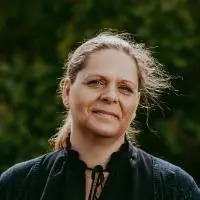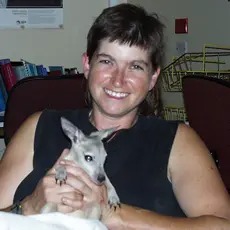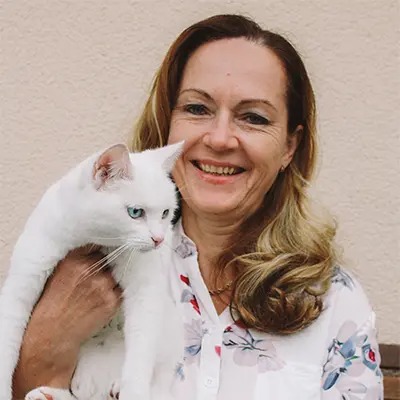Emergency and Elective Caesarean Sections in the Bitch and Queen: Algorithms to Optimize Outcomes for Both the Dam and Neonates
Species
Small Animal
Contact Hours
3 Hours - RACE Approval Pending
Language
English
Discipline
Anaesthesia & Pain Management
Diagnostic Imaging
Emergency & Critical Care
Internal Medicine – Endocrinology, Haematology, Infectious Diseases, Parasitology & Oncology
Neonatology
Reproduction / Theriogenology
Surgery
Toxicology & Pharmacology
Veterinary Partner
Small Animal
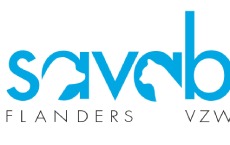
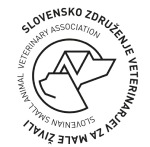

Recorded on: 21st March 2024
Panelists:
Kurt de Cramer BSc., BVSc., MMedVet(Gyn), PhD - Rant En Dal Animal Hospital, South Africa
Helle Harding-Poulsen DVM, PhD - University of Copenhagen, Denmark
Andrea Münnich DVM, PhD, DECAR - Tierarztpraxis Schönow, Germany
Moderator:
Cheryl Lopate BS, MS, DVM, DACT - Reproductive Revolutions, USA
PANEL DISCUSSION DESCRIPTION
This interactive panel discussion will cover decision making regarding whether an elective C-section versus free whelping is best for the dam and the neonates and the ethical conundrums that go with these decisions. Our international panel of world-leading experts will discuss the risks and complications of both elective and emergency C-section procedures and how those may influence the veterinarians’ recommendations or the breeders’ choices on whether they free whelp or elect for C-section prior to onset of labour. Included in the discussion will be estimation of foetal maturation for delivery utilizing progesterone concentrations and ultrasonography. Decision making guidelines will be addressed on how to guide breeders on when to seek medical advice during the whelping process.
Anaesthetic protocols for routine and emergency C-sections will be covered. Physiologic differences between pregnant bitches and non-pregnant patients as well as effects of anaesthetics on neonates and ways to minimize their negative impacts will be included.
This is part 1 of our C-section panel discussion. See part 2 covering surgical considerations for emergency and elective C-section and techniques for successful neonatal resuscitation in dogs and cats.
Dr Kurt De Cramer was born in Belgium where he attended primary school. After immigrating he completed high school and his tertiary education (BVSc) at the university of Pretoria in South Africa (1986). He started his veterinary career at a research Laboratory and entered private practice in 1992 when he co-founded the Rant-en-Dal Animal Hospital. In furthering his studies, he obtained his Master’s degree MMedVet (Gyn) and later his PhD, all whilst in private practice. Dr de Cramer practices both as general practitioner and theriogenologist. Dr De Cramer has extensive experience with service dog breeding and neonatology. Dr De Cramer has remained in close contact with his Alma Mater leading to publications in both peer reviewed journals and lay magazines and regularly hosts talks on various aspects of dog and cat breeding. His inquisitive mind compels him to continue making a contribution to the science of dog breeding; constantly researching and solving clinical problems that breeders experience. He contributed to writing the reproduction control guidelines for WSAVA, writing guidelines for WSAVA vaccination guidelines group as well as responsible breeding guidelines for the world. He is a frequent speaker at international congresses dedicated to both general practice and specialist theriogenology topics. He has completed a comprehensive reference book on dog breeding.
More InfoHelle graduated from The Royal Veterinary & Agricultural University, Copenhagen, Denmark in January 2000, and completed her Ph.D. degree in Small Animal Clinical Sciences, Medical/ Surgical Diseases / Companion Animal at the Department of Clinical Sciences, The Royal Veterinary & Agricultural University, Copenhagen, Denmark, April 2003.
Following more than two decades of teaching under- and postgraduate clinical companion animal anaesthesiology, Helle has now consolidated her position as a highly specialized clinical anaesthesiologist with solid teaching experience as Teaching Associate Professor of Companion Animal Anaesthesiology to further improve the learning of future veterinary professionals at University of Copenhagen.
More InfoDr. Lopate received her BS from Colorado State University in 1984 and a Masters Degree in Reproductive Physiology in 1987 from The Ohio State University. She graduated from The Ohio State University College of Veterinary Medicine in 1991.
She practiced in a rural mixed practice in Minnesota from 1991 – 1995. She then went on to complete a residency in comparative theriogenology (reproduction) at Purdue University from 1995—1997. She was board certified in Theriogenology in 1997. She continued to teach clinical reproduction at Purdue University Veterinary Hospital for 2.5 more years, and during that time, spent 6 months on sabbatical in Australia, working on horses and companion animals.
Since that time she has been practicing predominantly companion animal and equine reproduction. She has had extensive experience with both large and small stud farms in the equine industry and with both professional companion animal breeders and pet owner/breeders in the companion animal field.
She opened a reproduction specialty practice in November of 2003 and provided reproductive services for horses and small animals until 2021. In 2021, she retired from equine practice and currently co-owns a companion animal practice and provides services to dogs, cats and the occasional exotic animal at the Portland Zoo that needs reproductive specialty care.
Dr. Lopate has a Pembroke Welsh Corgi, an Australian Shepherd, a Cleveland Bay gelding, 2 miniature donkeys, 2 barn cats and 3 sheep for her dogs to herd. She enjoys hiking, biking, herding sheep, playing with her dogs and crafting in her free time.
More InfoAndrea qualified from the Humboldt-University of Berlin, Germany in 1988 and went on to work at the Clinic for obstetrics and reproductive disorders in animals, from 1997 at the Clinic for Reproduction at Freie Universität Berlin until 2006. Thereafter she went in private practice, specialized in animal reproduction, from 2011 additionally as an Official Veterinarian in the Animal Welfare.
Andrea performed an Internship at the Veterinary Referral Centre in Frazer/ Philadelphia (specialized training in small animal reproduction) in 2000. She became a Diplomate of the European College of Animal Reproduction in 2002, a Board member of the EVSSAR and was appointed to the ECAR Exam Committee in 2014. Her main activities focus on neonatology of dogs and cats, as well as on obstetrics and disturbed parturition in dogs.
Andrea has published several clinical and scientific articles in peer-reviewed veterinary journals, and she regularly reviews manuscripts for scientific journals. She is a co-author of four books. She additionally lectures regularly at national and international courses/conferences on small animal reproduction and as a guest lecturer at the Wroclaw University of Life Sciences in Poland.
More InfoQualified Vet
Online Panel Discussion Fully Booked
USD 110.00
Intern/Resident/PhD (Requires proof of status)
Online Panel Discussion
USD 80.00
Vet Nurse/Vet Tech (Requires proof of status)
Online Panel Discussion
USD 80.00
Veterinary Student (Requires proof of status)
Online Panel Discussion
USD 20.00
If the options you are looking for are unavailable, please contact us.
No tax will be added unless you are a UK taxpayer
Choose currency at checkout






